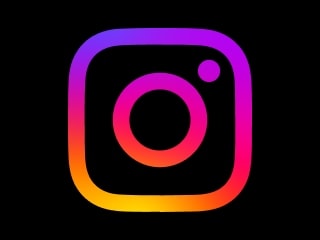- Home
- Telecom
- Telecom News
- TRAI Directs Telecom Providers to Set Up Digital Platform for Customer Consent to Curb Promotional Calls, Messages
TRAI Directs Telecom Providers to Set Up Digital Platform for Customer Consent to Curb Promotional Calls, Messages
In the first phase, only subscribers will be able to initiate the process to register their consent for receiving promotional calls and sms.

TRAI has now issued a direction to all the access providers to develop and deploy DCA
In order to curb the menace of pesky calls and sms, telecom regulator TRAI has directed service providers to develop a unified digital platform in two months to seek, maintain and revoke customers' consent for promotional calls and messages.
In the first phase, only subscribers will be able to initiate the process to register their consent for receiving promotional calls and sms, and later, business entities will be able to reach out to customers to seek their consent to receive promotional messages, Telecom Regulatory Authority of India (TRAI) said in a statement on Saturday.
"TRAI has now issued a direction to all the access providers to develop and deploy the Digital Consent Acquisition (DCA) facility for creating a unified platform and process to register customers' consent digitally across all service providers and principal entities," TRAI said.
At present, there is no unified system to show the consent of customers for getting promotional messages.
"Considering the volume of work involved, TRAI has allocated two months time to develop such facilities by all Access Providers and thereafter implement it in a phased manner. This direction has been issued by TRAI under its Telecom Commercial Communication Customer Preference Regulations, 2018," TRAI said.
Under the prevalent system, consent is obtained and maintained by various principal entities such as banks, other financial institutions, insurance companies, trading companies, business entities, real estate companies, etc.
The absence of a unified digital platform makes it impossible for telecom operators to check the veracity of consent.
"The DCA process shall have the facility to seek, maintain and revoke the consent of customers, as per the processes envisaged under TCCCP Regulation 2018. The consent data collected will be shared on the Digital Ledger Platform (DLT) for scrubbing by all access providers," TRAI said.
Access providers, which include telecom players like Reliance Jio, Bharti Airtel, and Vodafone Idea, have been further directed to use a common short code starting with 127 for sending consent-seeking messages.
"The purpose, the scope of the consent, and the principal entity or brand name shall be mentioned clearly in the consent-seeking message sent through the short code," the statement said.
Only whitelisted or approved web or app links, callback numbers, etc will be allowed to be used in the consent-seeking messages, it said.
"Further, access providers shall develop an SMS, IVR (interactive voice response), online facility to register unwillingness of the customers to receive any consent-seeking messages initiated by any principal entity," the statement added.
Catch the latest from the Consumer Electronics Show on Gadgets 360, at our CES 2026 hub.
Related Stories
- Samsung Galaxy Unpacked 2025
- ChatGPT
- Redmi Note 14 Pro+
- iPhone 16
- Apple Vision Pro
- Oneplus 12
- OnePlus Nord CE 3 Lite 5G
- iPhone 13
- Xiaomi 14 Pro
- Oppo Find N3
- Tecno Spark Go (2023)
- Realme V30
- Best Phones Under 25000
- Samsung Galaxy S24 Series
- Cryptocurrency
- iQoo 12
- Samsung Galaxy S24 Ultra
- Giottus
- Samsung Galaxy Z Flip 5
- Apple 'Scary Fast'
- Housefull 5
- GoPro Hero 12 Black Review
- Invincible Season 2
- JioGlass
- HD Ready TV
- Laptop Under 50000
- Smartwatch Under 10000
- Latest Mobile Phones
- Compare Phones
- Tecno Spark Go 3
- iQOO Z11 Turbo
- OPPO A6c
- Samsung Galaxy A07 5G
- Vivo Y500i
- OnePlus Turbo 6V
- OnePlus Turbo 6
- Itel Zeno 20 Max
- Lenovo Yoga Slim 7x (2025)
- Lenovo Yoga Slim 7a
- Realme Pad 3
- OPPO Pad Air 5
- Garmin Quatix 8 Pro
- NoiseFit Pro 6R
- Haier H5E Series
- Acerpure Nitro Z Series 100-inch QLED TV
- Asus ROG Ally
- Nintendo Switch Lite
- Haier 1.6 Ton 5 Star Inverter Split AC (HSU19G-MZAID5BN-INV)
- Haier 1.6 Ton 5 Star Inverter Split AC (HSU19G-MZAIM5BN-INV)















